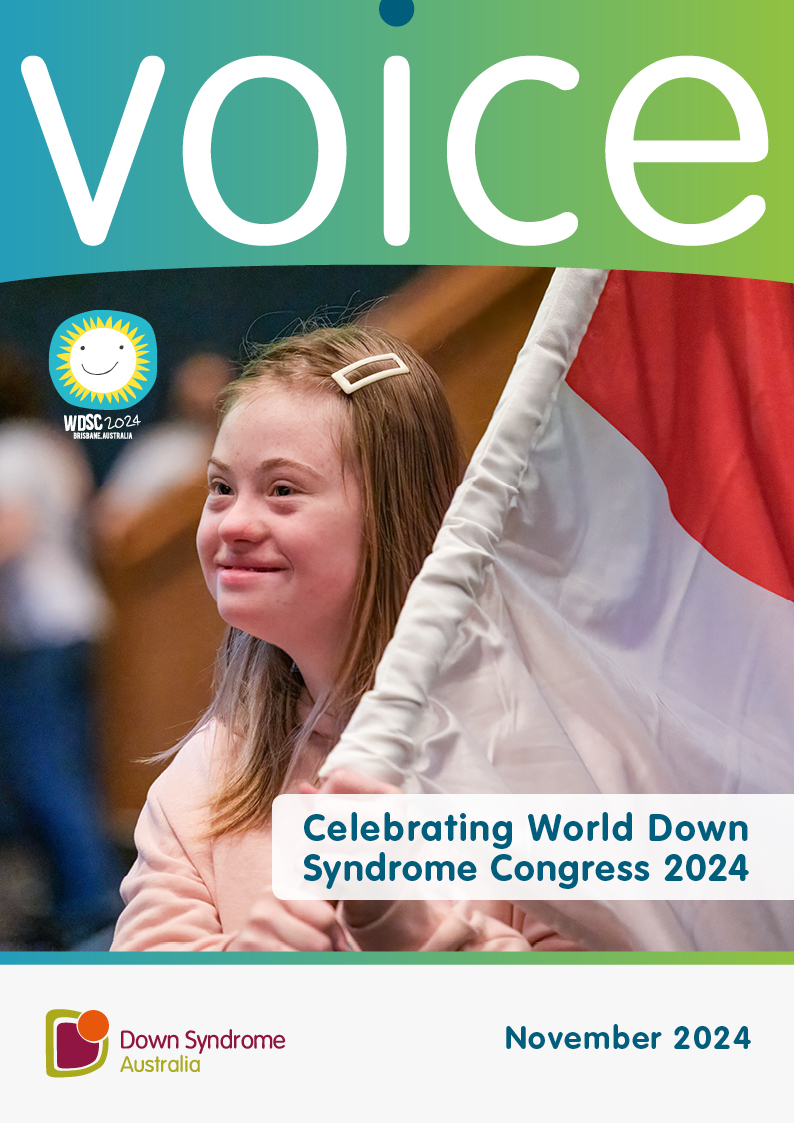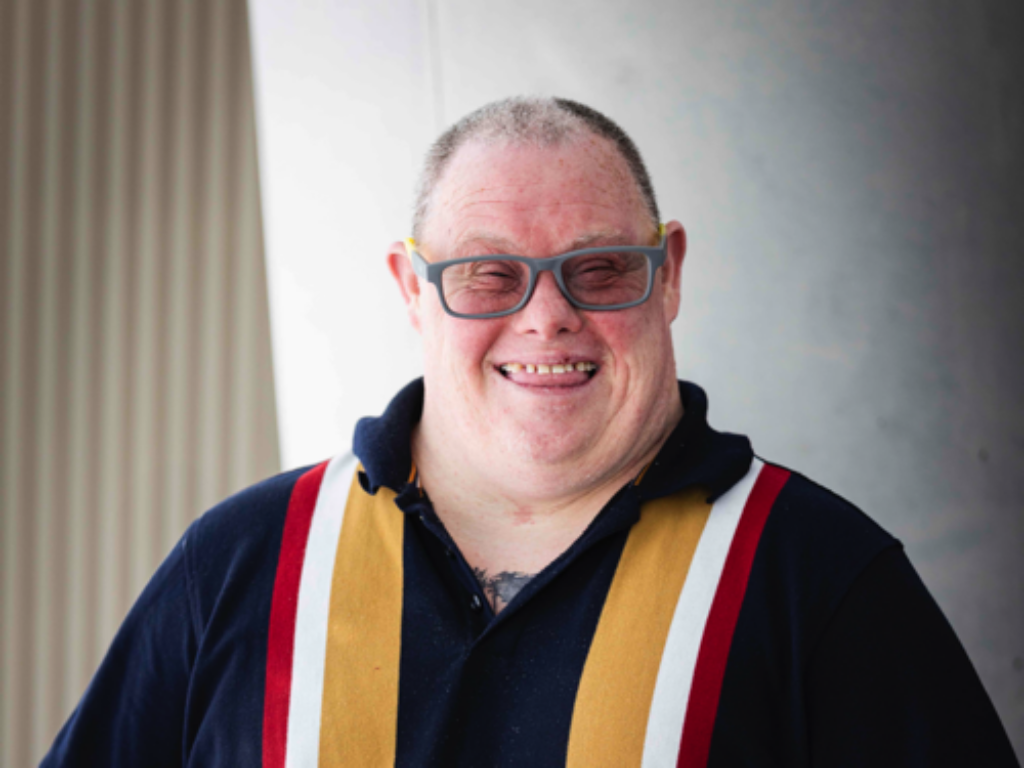Speaking out
Leigh Creighton is a Newcastle-based disability and human rights advocate, passionate about sharing his experience as a person with Down syndrome. He regularly speaks at events and on panels across Australia. We sat down with him at Congress to hear about his motivational speaking.
To read the full digital issue of Voice, download a copy here.
When did you first learn about standing up for your rights and speaking up?
I started in a program and found my own voice and learned to get on stage and speak. I became a peer mentor and motivational speaker, advocating for people with Down syndrome and mental health advocate.
What is a peer mentor?
As a peer mentor, I teach people from other organisations to learn to speak up for themselves. It makes me feel great helping other people to be their own self-advocates.
What tips would you give to people who are keen to become an advocate?
First and foremost, you’ve got to find your own voice. Speak naturally. Speak compassionately and help others along the way to promote their own voice. I’ve started a self-advocacy group down where I live and it’s really important for those people to have family and other support people to help them speak up.
What do you hope to do in the future?
I want to become an author and write my own book. I want to work towards the United Nations speak. I always wanted to go around the world doing TEDx talks. I want to be a well-known Down syndrome advocate. I want to advocate around the world. It’s very important to make my nieces and nephews very proud of me.
What do you want people to know about people with Down syndrome?
Don’t ever put people down. That’s something I don’t like. Don’t ever put people down. Always lift them up.
What do you wish people knew about people with Down syndrome?
They bring the gift of love. They bring their own self. I wish that one day, people with Down syndrome can rule the world.
What are some misconceptions about people with Down syndrome?
That they’re always happy. But on some days, they’re not happy. Sometimes it comes from mental health, comes from depression, anxiety. I just want people to be able to do things freely, to make their lives better.
What negative experiences have you had as a person with Down syndrome?
When I’m out in the community, I get called a lot of bad language—retarded and spastic. Bullying. It makes me really upset. It makes me vulnerable to see people go through that.
What changes would you like to see to improve life for people with Down syndrome?
We should be treated like human beings, like everyone else in this world.

Download the full digital edition of Voice here.


0 Comments